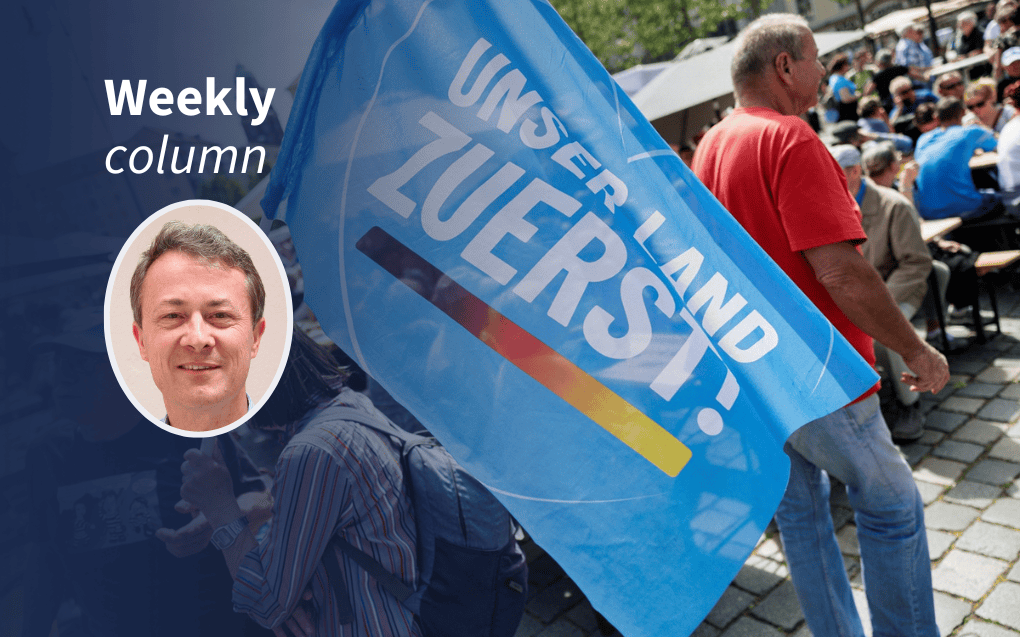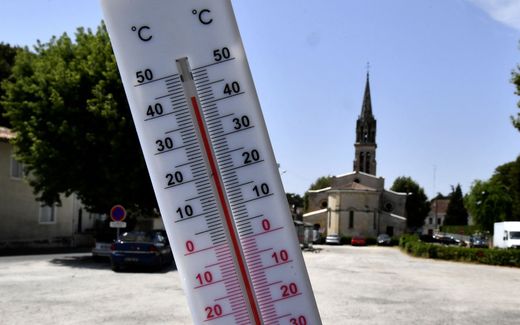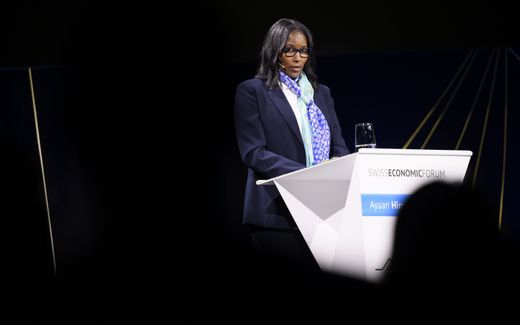This is the way out in the German crisis

A supporter of the German far-right Alternative for Germany (AfD) party hold a flag reading "Our land first!" Photo AFP, Jens Schlueter
Christian Life
Germany is currently in an unusual situation for its inhabitants: we are in a deep crisis. And not just in one area, but in several: The economy, politics, administration, churches... This is the way out, says columnist Wolfgang Stock.
Stay up to date with Christian news in Europe? Sign up for CNE's newsletter.
The economy is the most worrying thing these days: Germany is in a minor recession – as one of the few countries in the EU (alongside Estonia, Luxembourg, Lithuania and Finland). It doesn't feel as if we are the strongest economy, although we've always lived with that idea in mind...
But the economic crisis would only be half as bad and could perhaps soon be over if we didn't also have the biggest government crisis in living memory: a three-party coalition that is completely divided after three years in power. Nothing can be done together, least of all-powerful decisions on how to overcome the economic crisis.
Appointment
It fits in with an attitude to life that "nothing works anymore". Take the railway, for example. In Germany, people used to be proud that the trains ran reliably according to schedule. "As punctual as the railway" was a frequently used saying.
For two or three years now, this has been pure irony: in June, only 53 per cent of German long-distance trains were on time. The situation is similar to that of the authorities: If you want to apply for an identity card in Berlin, you probably have to wait months for an appointment.
Elections
Then, there is the political landscape in Germany. Both at the federal level and in the three eastern federal states of Saxony, Thuringia and Brandenburg, where elections have just taken place, we are experiencing a hopeless government crisis by German standards. At the federal level, in Berlin, it is disunity. In addition, there is only one democratic opposition party, which means that even in the event of new elections, another coalition is hardly conceivable at present.
In the three eastern federal states, two parties, the Alternative for Germany (AFD) and the Sara Wagenknecht Alliance (BSW), have made huge gains in the elections. They want to abolish or at least dramatically change the current system. But their xenophobia and Russia-friendliness are particularly striking.
And then there are the two large churches – both immersed in dramatic crises. They have been so for years already, but now the disaster is worse than ever due to ever new revelations about cases of abuse in the past. The number of people leaving the church is correspondingly high. For decades, the annual number of people leaving has been well over 100,000 - 2023
In total, more than 402,000 people left the Catholic Church, while around 380,000 left the Protestant churches in 2023. In a country that was still dominantly Christian just a few decades ago, only less than half of the population are Christians today: 25 per cent Catholics, 23 per cent Protestant regional churches, 2 per cent Protestant free churches, 2 per cent Orthodox.
Spiral
Unfortunately, because the big churches are in a downward spiral, we can hardly expect any groundbreaking words from them on the worldly crises.
So, there would be enough reason for Christians to despair. But Christians know: This is the fallen world – we can look forward to the kingdom of heaven, to paradise: "Let not your heart be troubled! Believe in God and believe in me! In my Father's house are many mansions", says John in chapter 14, and that may be our consolation.
Related Articles









